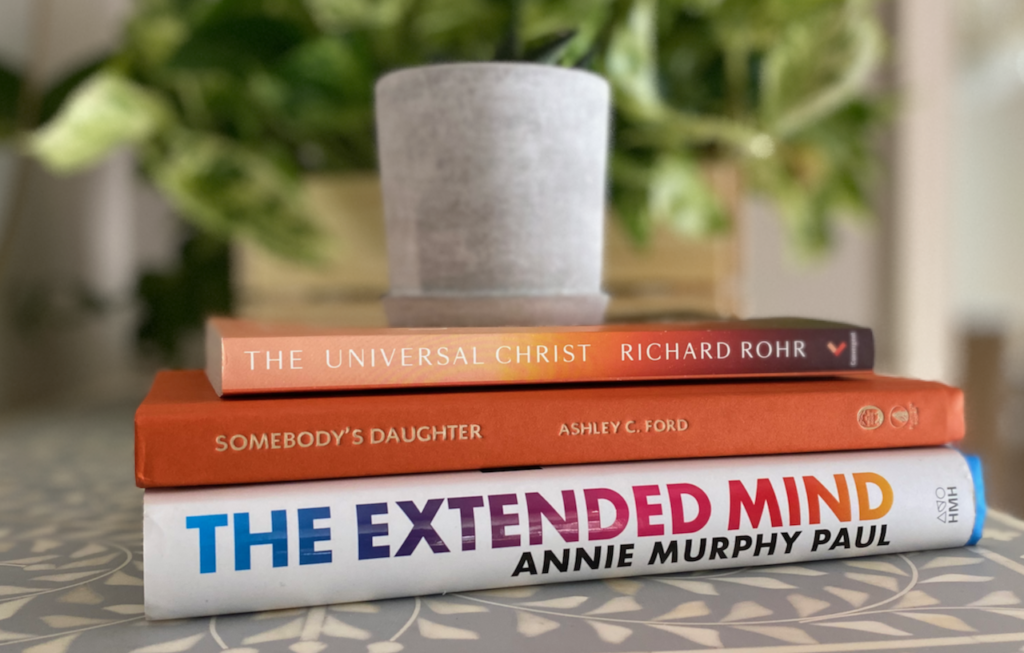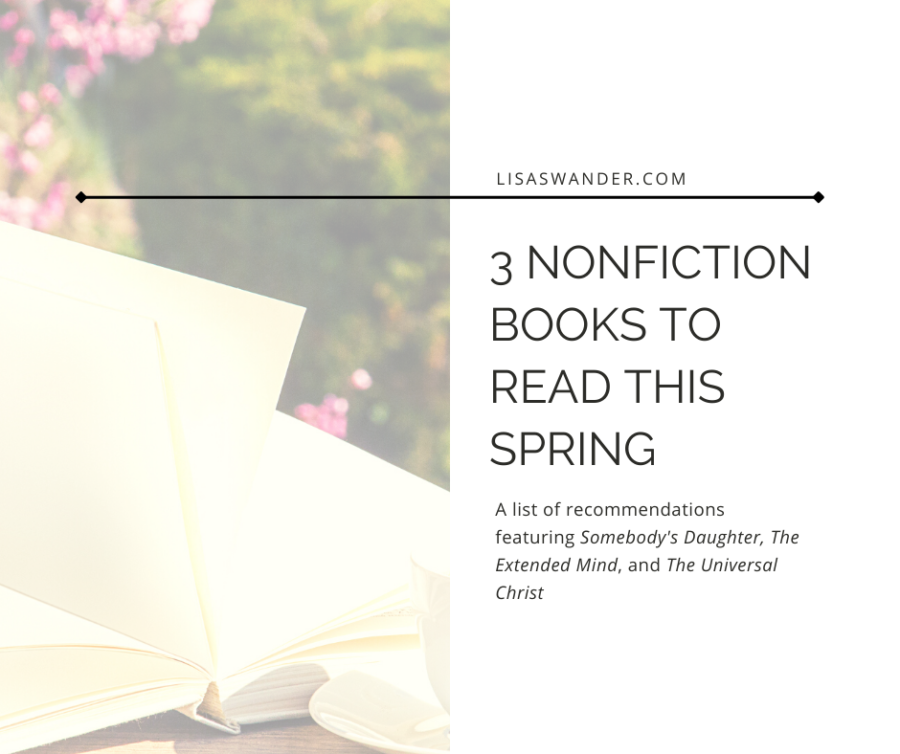In bookstores, I struggle not to construct a nest of stray receipts and discarded bookmarks and live forever in the nonfiction section. Not great for a fiction writer (or a former English teacher), but it does give me a few titles to recommend to you, my fact-hungry blog-reading friends.
If, like me, you crave information as much as you crave a good romantic comedy, here are a few nonfiction books I haven’t been able to resist reading this spring.

Somebody’s Daughter, Ashley C. Ford
First off: CHIRP. CHIRP.
Ball State people tend not to get too filled with the holy school spirit (the university was bribing us with free hot dogs to attend football games during my tenure), but boy do we love to see an alumnus succeed. And, if her residency on best-seller lists and award-winning podcasts is any indication, fellow Cardinal Ashley C. Ford is succeeding indeed.
Rightfully so. Her memoir, Somebody’s Daughter, is a frank, compassionate recollection of her childhood and adolescence with a volatile mother and an incarcerated father. There is trauma and abuse in her life, but there’s also love and support, and she recounts both with an even-handed empathy and literary flourish that makes you want to pour this book into a mug and drink it.
Read Somebody’s Daughter if you’re at the beginning, middle, or end of reckoning with the humanity of your own caregivers; or if you are inspired by the way people can use their stories for healing and growth. It won’t take you long to read, but be ready to take some time to digest.
The Extended Mind, Annie Murphy Paul
We all like brains. Zombies like to eat them, scientists like to study them, and the rest of us like to believe in them as the repository of all human potential. In The Extended Mind, however, Annie Murphy Paul suggests—with EXHAUSTIVE research—that we’ve gone a bit too far on the brain worshipping. In fact, we’re probably at a point in civilization at which we’ve maxed them out. Our technology has outpaced the kinds of calculations and problem-solving the human brain can do alone.
So we’re going to need to start extending it.
Or, more accurately, we’re going to need to get back to extending it. Body sensations, movement, immersion in natural spaces, and—get this—talking to other humans (*shudder*) have helped us think more creatively since we began walking upright. We’ve just gotten so infatuated with technology, and a “brainbound” view of cognition, that we’ve forgotten how much they help.
This book will remind you that you don’t do your best thinking in front of that magical screen you’re reading this on, and that your brain is more connected to the sensory world around you than you imagine.
Read The Extended Mind if your day job involves solving problems of any sort. And REALLY read this if you increasingly have to solve said problems on a screen, which may or may not feel like eating miso soup with a fork. None of this information will be new to educators, by the way, but it’s a great refresher for those teaching post-COVID, when the iPad is king.
The Universal Christ, Richard Rohr
Richard Rohr is a Franciscan priest who, in all of his books, argues for a Christianity that draws from mysticism, nondualism, and a healthy dose of admitting we don’t have all the answers. I can pick up any of his books and feel like I’m breathing oxygen I didn’t know I was missing, but The Universal Christ is my favorite so far.
In this book, Rohr explains “Christ” not as Jesus’ last name, but as an endless—truly endless, universal—inclusivity. Not “all are welcome here as long as we can change your mind eventually” inclusivity, but a recognition that God is in everything that has ever existed and will ever exist. Even the people, events, and things we don’t like, including the shadowy parts of our own selves.
As such, he says, Christianity is a natural, logical tool for social justice, environmental protection, and personal growth. Only socio-political forces have convinced us otherwise.
Oh, and there’s an entire chapter called “The Feminine Incarnation.” So.
Read The Universal Christ if you’ve struggled to reconcile the way Christianity often shows up in the world with your beliefs about the inherent worth of all people. Also if you’re kind of allergic to certitude. It’s okay to prefer to lean into unknowing, mystery, quiet contemplation, and all that good juicy stuff.
One more note: I noticed Father Richard turned up on Dr. Brené Brown’s podcast this week. If you’re so-so on committing to an entire book, you might let Brené introduce you instead.
As always, I would love to know what nonfiction has been blowing your mind recently. Happy reading!


